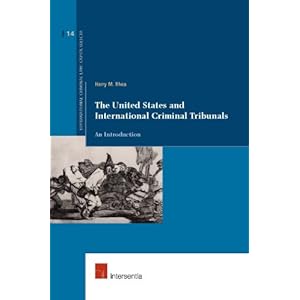Since the conception of an international criminal court, the United States played an intricate role in each international debate. The influential weight of the United States determined the outcome of creating temporary international criminal tribunals, international support for national tribunals, as well as any progress to create a permanent international criminal court of its liking. The International Criminal Court is the only international criminal tribunal that not been influenced by the United States.
Currently, throughout the international community, there are many anti-American criticisms concerning the foreign relations policies of the United States, in particular, its position on the International Criminal Court. Yet, all previous multinational and international criminal tribunals, which helped influence the creation of the International Criminal Court, had the support of the United States. The question this research attempts to answer is twofold. First, at the macro level, has there been an underlying position of the United States toward international criminal tribunals since the 1899 Hague Peace Conference that has remained constant through presidential administrations? If so, at the micro level, what is this underlying policy?
Introduction
Chapter
1. Pre-First World War Era
Chapter
2. Post-First World War Era
Chapter
3. Interwar Era
Chapter
4. Post-Second World War Era
Chapter
5. Cold War Era
Chapter
6. Post Cold-War Era
Chapter
7. Creating the International Criminal Court: 1989 – Rome Conference
Chapter
8. International Criminal Court: Post-Rome Conference – 2012
Chapter
9. Conclusion

Harry M. RHEA, The United States and International Criminal Tribunals. An Introduction, Cambridge, Intersentia, 2012 (234 pp.)
Harry M. Rhea is Assistant Professor of Criminal Justice at Florida International University. He is a former United States Marine and holds a B.A. from Rutgers University, an M.S. from Saint Joseph’s University, and a Ph.D. from the Irish Centre for Human Rights at the National University of Ireland, Galway. His research focuses specifically on United States foreign policy and international criminal justice.
Aucun commentaire :
Enregistrer un commentaire